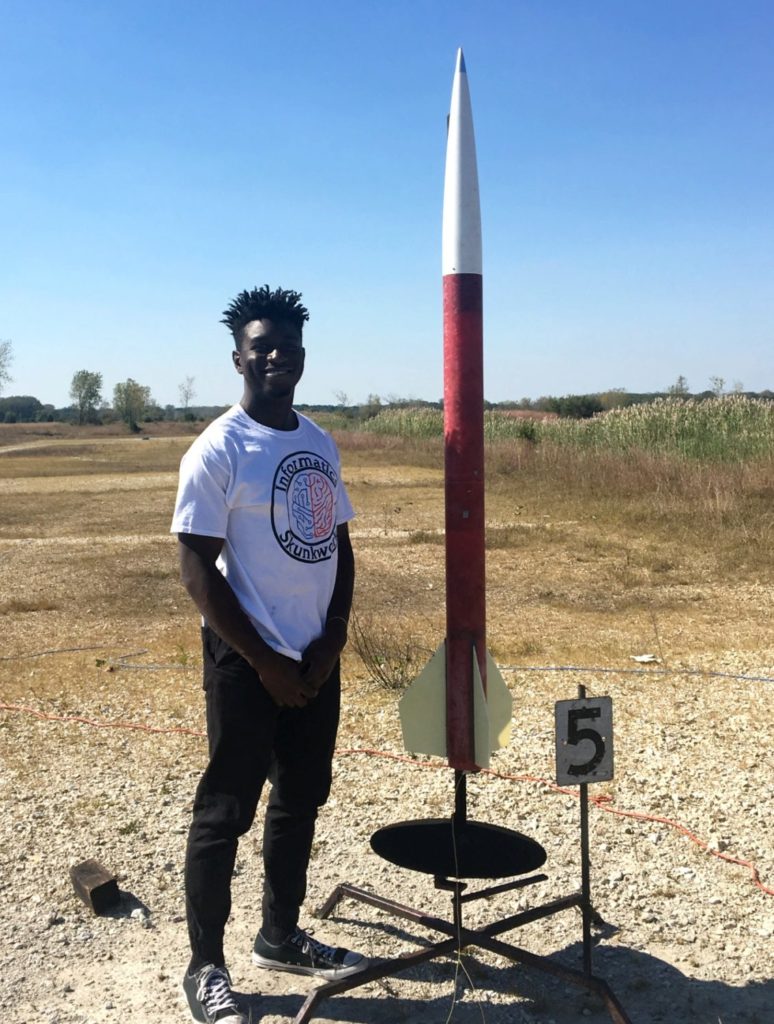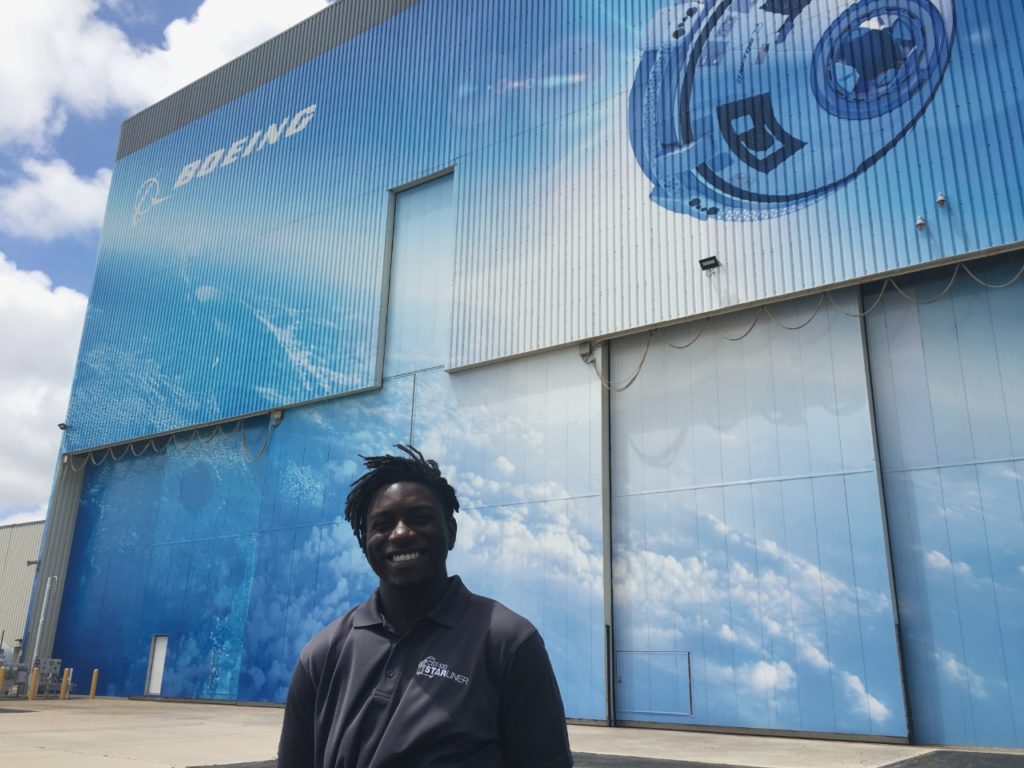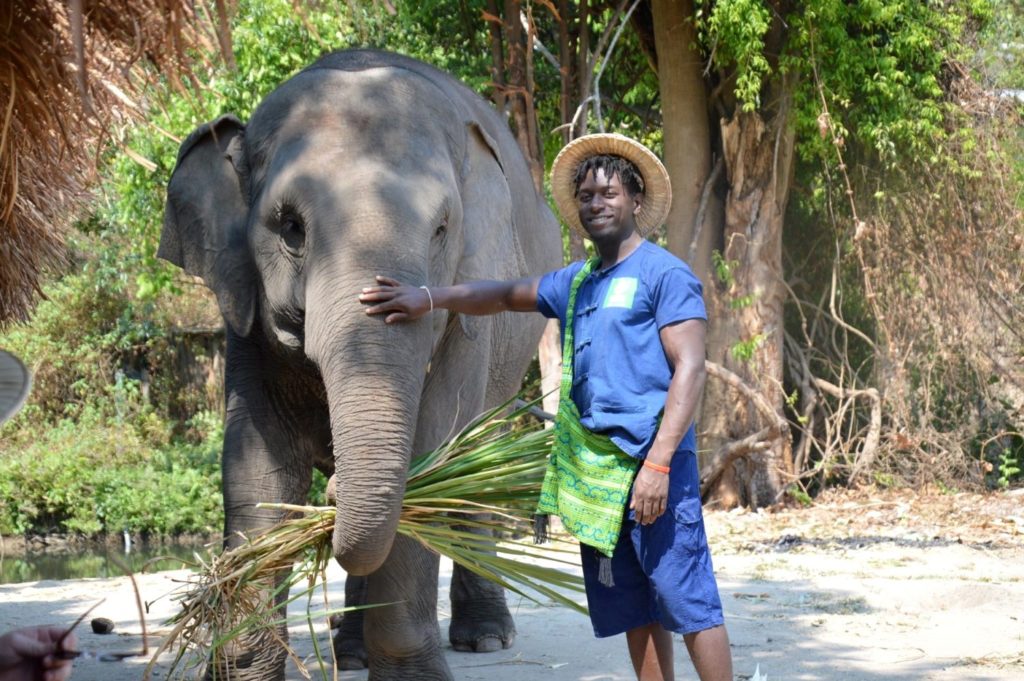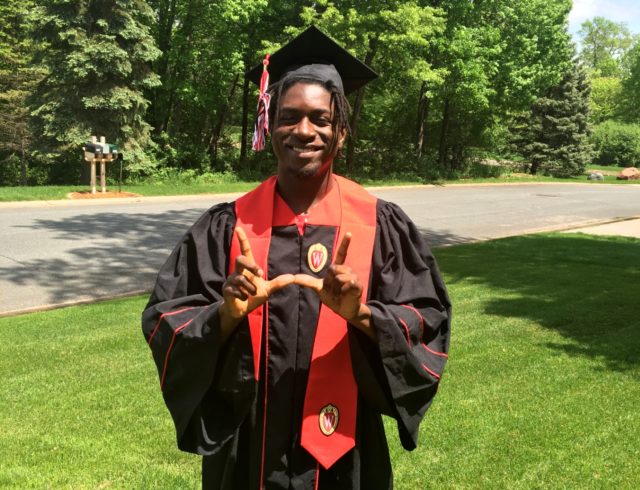The University of Wisconsin-Madison was not able to honor its class of 2020 UW-Madison engineering graduates in-person this year due to the coronavirus pandemic, but for Ebenezer Fanibi it still feels amazing.
“It feels great. No more assignments; no more classes,” Fanibi tells Madison365. “It’s not as great as you would hope given the pandemic and all. Not getting to walk for graduation is a little bit of an anti-climatic ending. It’s something you look forward to – being able to walk across that stage. but it’s still exciting to move on to the next stage in life.”
Fanibi is originally from Blaine, a suburb north of Minneapolis.
“My brother went to school in Madison and he enjoyed his time there,” Fanibi remembers. “I really wanted to try something different than Minnesota – I’ve been in Minnesota my whole life. UW-Madison came up as one of my options and it was a highly regarded school.”
Fanibi says he chose the engineering field because he wanted to do something math and science-related and liked solving complex problems. He wanted to create things.

“I didn’t know exactly what I wanted to do but the great thing about mechanical engineering is that you don’t really need to know that until you start to look for jobs,” he says. “But around the summer of my junior year I felt like I really needed to start looking at what I wanted to do when I graduate and that’s when I began to learn more about space and rocketry.
“What I like about space is that any achievement made by a company or by the government in the space industry is an achievement for humankind,” he adds. “If you’re the first person to do something in space, you’re kind of working for the human race versus just working for a corporation.”
Last summer, Fanibi was a Spacecraft Fluids Testing Intern for The Boeing Company, a multinational corporation that designs, manufactures, and sells airplanes, rotorcraft, rockets, satellites, telecommunications equipment, and missiles worldwide. At the Kennedy Space Center in Florida, Fanibi assisted in the development of the CST-100 Starliner capsule for the NASA Commercial Crew Program. They were focused on the testing and integration of the vehicle’s active thermal control system.

“The project that Boeing was working on was pretty cool,” he remembers. “You’d walk downstairs every day and there was a literal spacecraft just chilling there. That was extremely cool.
“That was a pretty dope experience because you are around decades and decades of US space heritage and history,” he continues. “I’d drive to work and I’d drive by the first launchpads that took astronauts to the moon. You could drive around work and find where the first rockets to get to space. There were lots of astronauts around and so many historic buildings.”
Fanibi says it was also a pretty cool experience being in the UW mechanical engineering program, among the top mechanical engineering programs in the nation.
“It’s pretty cool being a Badger engineer. You get a lot of interesting experiences,” Fanibi says. “The courses are really helpful. The labs, especially, are pretty top-level. The professors are fantastic at UW. You get a lot of experiences that you might not get at other universities including opportunities to participate in research. I love the engineering campus.”
Students of color studying science, technology, engineering and math (collectively known as STEM) are underrepresented at colleges throughout the United States. Was that something that Fanibi also experienced?
“The diversity is getting there but definitely slowly,” he says. “Being in the diversity scholarship program helped a bit because you get to see a lot of diverse faces.
“There’s still much work to be done as far as diversity in engineering and STEM, but during my four years I could tell it was getting a little better,” he adds.
Dr. Mary Fitzpatrick, director of the Diversity Affairs Office for the College of Engineering, has been impressed by Fanibi.
Fanibi has been a Leaders in Engineering Excellence and Diversity (LEED) scholarship recipient, an award given to high-achieving women and students of color in the College of Engineering. He has also been a member of several campus organizations including the American Society of Mechanical Engineers (ASME), the American Institute of Aeronautics and Astronautics (AIAA), the Wisconsin Union Directorate Music Committee (WUD Music) and the African Student Association (ASA).
As a general team member for WI Space Race, UW-Madison’s first undergraduate team to work exclusively on designing, manufacturing, and testing of liquid propellant rockets, Fanibi worked on designing and building a single-stage liquid-powered rocket that will reach an altitude of 100km.
Fanibi also has worldly experience under his belt: Last summer he studied mechanical engineering abroad at the Nanyang Technological University, the second oldest public autonomous research university in Singapore.

Now that he has graduated, Fanibi is primarily looking for an entry-level position in the aerospace industry with specific interests in thermal and fluid systems, propulsion, design, and system hardware integration.
“Hiring is a little bit slower during the pandemic. I think things are starting to pick up again as things begin to open back up. But at the moment, the opportunities are pretty limited. You just have to ride it out,” Fanibi says, talking about his job prospects during the coronavirus pandemic.
“I’m very much interested in being involved with space. I can’t really speak to exactly what I want to do mostly because I’ve only done one role in this industry. I do like design analysis. I’ve done some testing work; I’m not sure I want to do that again. I like design analysis, systems engineering … those are some of the main roles I’d be interested in,” he says. “But definitely something involving aerospace, space …. Things that push the bill.”




























